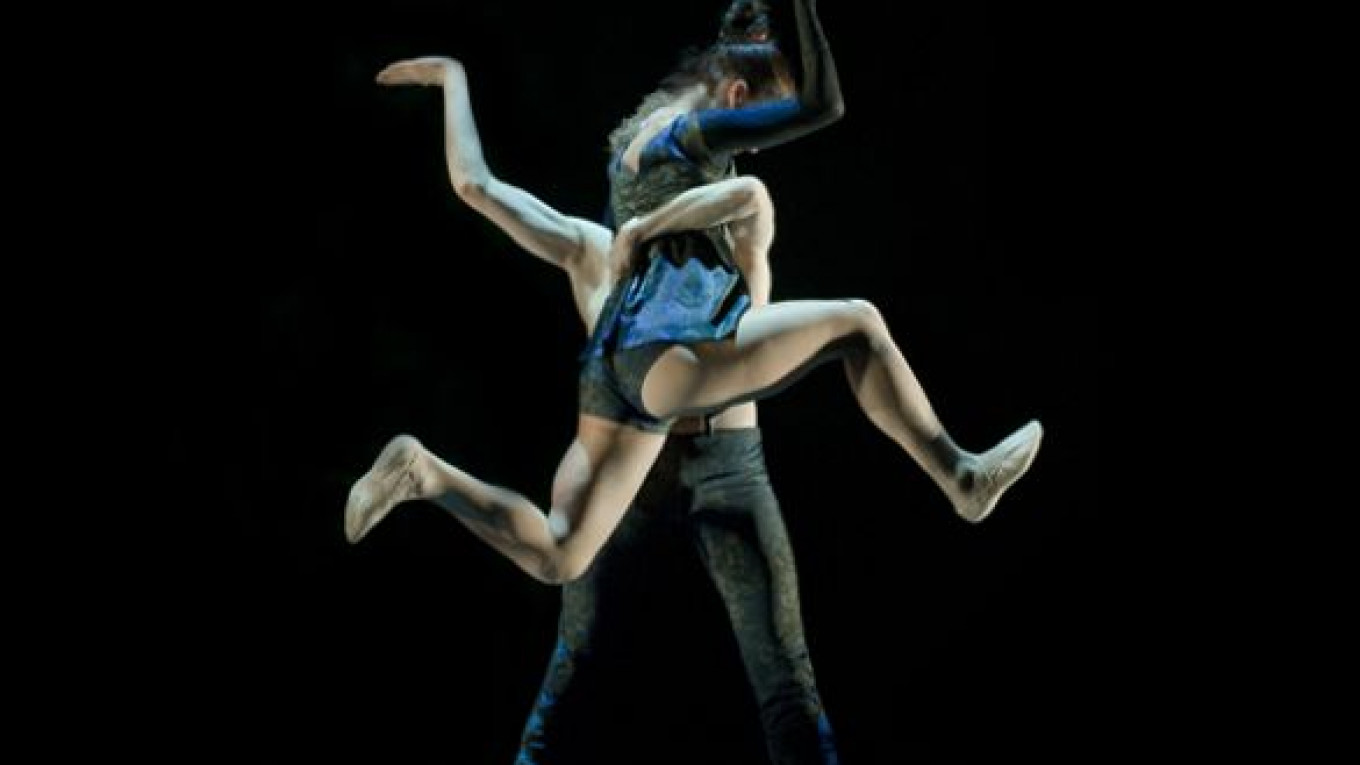It is important to be reminded every so often that Russia’s balletic prowess extends beyond the Bolshoi and the Mariinsky. While these two artistic powerhouses tend to dominate our perception of ballet in this country, the truth is that Russia is home to numerous high-quality companies. Companies such as Perm’s Tchaikovsky Opera and Ballet Theater, St. Petersburg’s Mikhailovsky Theater, Moscow’s Stanislavsky and Nemirovich-Danchenko Musical Theater, and Novosibirsk’s Opera and Ballet Theater may lack the brand power of the Bolshoi and the Mariinsky, but the quality of their work should not be dismissed.
Sometimes, however, it takes a festival like the Golden Mask to point this out.
While the Bolshoi and the Mariinsky remain a key part of the Golden Mask this year — they have several performances entered in the competition — the bulk of the ballet program is made up of lesser-known companies. In fact, it was the Perm Ballet, one of Russia’s oldest though little known theaters that kicked off the Golden Mask’s main competition program with “To See the Music,” a program of four one-act ballets by three little-known (at least in Russia) Western European choreographers.
The first two ballets were by Spanish choreographer Cayetano Soto and were by far the strongest sets of the evening, especially the first piece, “Uneven” — a series of angular, off-kilter duets set to the minimalist music of David Lang. Framed by a stark white sheet of linoleum and a single cellist on stage, the stripped-down beauty of “Uneven” was visually arresting. The choreography was reminiscent of the sharp and fragmented vocabulary of British choreographer Wayne McGreggor, although the movements had a softness not found in his work. Soto’s intention with “Uneven” was to convey to the audience the feeling he gets when traveling; that disconcerting state when we lose all sense of space and time. “I would wake up in the night, and I could not understand where I was, in Munich, Paris, or the Netherlands. … It was a very strange feeling, a feeling of unbalance,” he explains. The other piece by Soto was the light-hearted “Quotidiano,” a meditation on the little things in life, like trying to find that second sock.
The second half of “To See the Music” was less successful. The world premiere of “Souvenirs,” created especially for the Perm Ballet by British choreographer Douglas Lee, was meant to evoke “an acute sense of nostalgia, sadness and longing for the past.” But the piece suffered from limited choreography and a genteel romanticism that completely failed to capture the emotional hit that is nostalgia. The last piece, “Meditation on Violence,” by Italian choreographer Luca Veggetti also suffered from a limited vocabulary of movement. This, coupled with an unfortunate use of dry ice and the ominous hum of Paolo Arally’s musical composition, left the audience bored rather than contemplative.
“To See the Music,” which takes its name from the famous line “See the music, hear the dance” by Russian choreographic great George Balanchine, was, nevertheless, enjoyable overall. This was largely due to the stellar technique of the Perm troupe. It was also impressive though their artistic director, Alexei Miroshnichenko, chose to stage contemporary ballets, rather than something more traditional. It used to be the case that smaller companies would stick to the classics: Swan Lake and Cinderella.
All that is changing. Of the 11 dances entered in this year’s competition for Best Ballet, just four are in a classical, narrative style. Instead, companies are increasingly opting for non-narrative, abstract ballets, and smaller companies, like the Perm Ballet, seem to have embraced this shift especially.
The Mikhailovsky Theater is another case in point.
Participating for the first time at the Golden Mask, this once little-known company (until it lured Spanish choreographer Nacho Duato to St. Petersburg) performed “Duende, Nunc Dimittis, Prelude,” a program of one-act, contemporary ballets by Duato, who is also the artistic director at the Mikhailovsky. With his sensual curves and contractions, Duato’s choreography follows in the style of dance legends Jiri Kylian and Martha Graham and has the unique ability of blending the classical with the contemporary. A favorite move is to break clean, classic lines, with unpointed, flat feet.
“Duende,” the first piece of the program, was spritely and whimsical. In Spanish, duende means rascal or elf, and the dancers with their lightness and speed perfectly captured this. Set to music by Debussy, the dance was frolicking and flirtatious — think something along the lines of “Midsummer’s Night Dream,” or Nijinsky’s “Afternoon of a Faun.” The second and third pieces of the program were the much newer “Nunc Dimittis” and “Prelude.” These works were more serious in tone, and while maintaining moves characteristic of Nacho Duato, the choreography as a whole was much more conservative.
Whether or not one of these performances wins Best Ballet, smaller companies, performing contemporary and abstract work, have taken a leading role in this year’s Golden Mask. Their inclusion is testament to the innovation and depth of Russia’s ballet tradition.
A Message from The Moscow Times:
Dear readers,
We are facing unprecedented challenges. Russia's Prosecutor General's Office has designated The Moscow Times as an "undesirable" organization, criminalizing our work and putting our staff at risk of prosecution. This follows our earlier unjust labeling as a "foreign agent."
These actions are direct attempts to silence independent journalism in Russia. The authorities claim our work "discredits the decisions of the Russian leadership." We see things differently: we strive to provide accurate, unbiased reporting on Russia.
We, the journalists of The Moscow Times, refuse to be silenced. But to continue our work, we need your help.
Your support, no matter how small, makes a world of difference. If you can, please support us monthly starting from just $2. It's quick to set up, and every contribution makes a significant impact.
By supporting The Moscow Times, you're defending open, independent journalism in the face of repression. Thank you for standing with us.
Remind me later.






